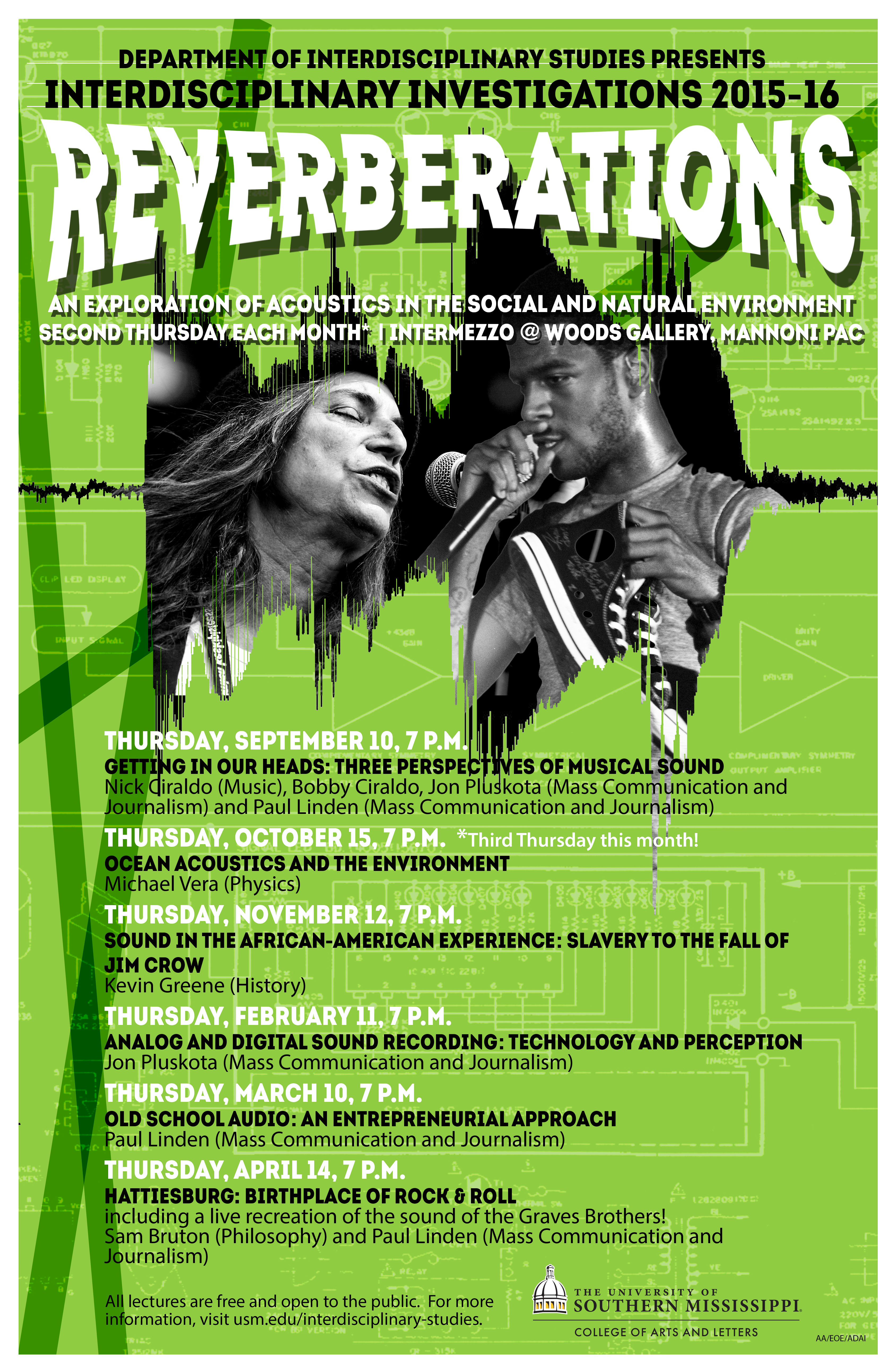Event Title
Sound in the African American Experience: Slavery to Jim Crow
Location
Mannoni Performing Arts Center
Start Date
12-11-2015 7:00 PM
Description
Largely stripped of literacy from the 17th century to Reconstruction in the United States, the aural world of African Americans took on significant meaning as both part of their folk heritage, their fight against American racism, and their expanding black consciousness.
My research investigates various moments along that trajectory, which highlight the importance of the world of sound to a laboring ethnic caste as they experienced slavery, emancipation, Jim Crow segregation and the long struggle for civil rights. Throughout this period, sermon, song, storytelling, work music, call and response, jokes, folk tales, whistles, double entendre, and masked language all became important sonic devices for the creation of community unity as well as individual agency under the shadows of racism and marginalization in the United States.
In other words, although disenfranchised, economically marginalized, and socially maligned, the world of sound—one where the rules, ideas, meanings could be defined by the oppressed—took on a completely different meaning. One that offers a fascinating lens for investigating the black experience in the United States.
Sound in the African American Experience: Slavery to Jim Crow
Mannoni Performing Arts Center
Largely stripped of literacy from the 17th century to Reconstruction in the United States, the aural world of African Americans took on significant meaning as both part of their folk heritage, their fight against American racism, and their expanding black consciousness.
My research investigates various moments along that trajectory, which highlight the importance of the world of sound to a laboring ethnic caste as they experienced slavery, emancipation, Jim Crow segregation and the long struggle for civil rights. Throughout this period, sermon, song, storytelling, work music, call and response, jokes, folk tales, whistles, double entendre, and masked language all became important sonic devices for the creation of community unity as well as individual agency under the shadows of racism and marginalization in the United States.
In other words, although disenfranchised, economically marginalized, and socially maligned, the world of sound—one where the rules, ideas, meanings could be defined by the oppressed—took on a completely different meaning. One that offers a fascinating lens for investigating the black experience in the United States.


